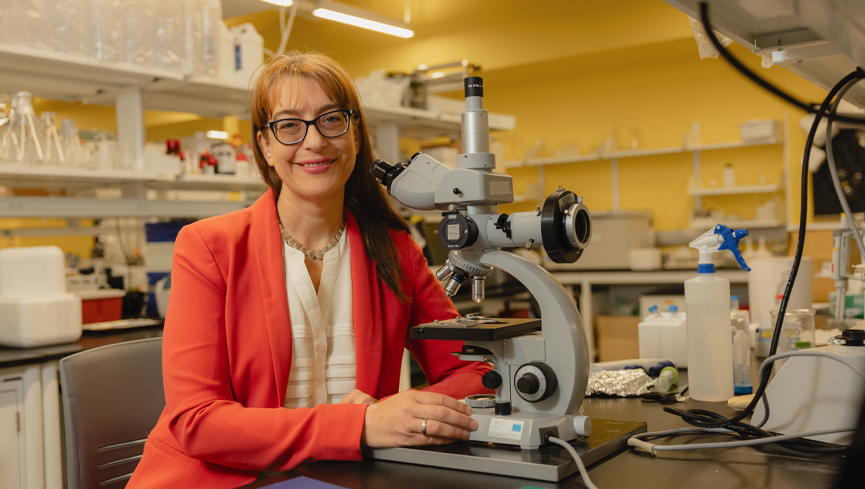A global group of researchers, including Dr. Gerlinde Metz from the University of Lethbridge’s Centre for Behavioural Neuroscience (CCBN) and Tony Montina from the Department of Chemistry & Biochemistry, is examining the long-term effects of spaceflight.

Headed by Dr. Afshin Beheshti, a scientist from the University of Pittsburgh, Metz and Montina, with their expertise in metabolomics, aging and the effects of stress, are the only Canadian researchers in the group. They and a team of ULethbridge students previously collaborated with NASA on analyzing blood samples from astronauts on International Space Station (ISS) missions.
“This groundbreaking work has the potential to significantly advance the understanding of the biological pathways that determine health outcomes associated with human spaceflight,” says Metz, who co-leads the Metabolomics Platform of the Southern Alberta Genome Sciences Centre (SAGSC) with Montina. “Considering the enormous physical and physiological strain induced on the human body by spaceflight, this research is both timely and necessary as societies prepare for longer periods of space travel.”
The Human Adaptation to Spaceflight study will look at a massive amount of data collected over 12 years on the ISS involving more than 70 astronauts. The researchers will determine the key factors that impact astronauts during spaceflight. The health impacts can include bone loss, cardiovascular disease, renal issues such as kidney stones, disruption of circadian rhythms, potential cancer risks and eye disorders.
“Understanding the integrated human system response to spaceflight will exponentially increase our understanding of the risks and potential countermeasures for space travellers,” says Beheshti, director of the Center of Space Biomedicine, associate director of the McGowan Institute for Regenerative Medicine and professor of surgery at the University of Pittsburgh.
Spaceflight affects mitochondria, which generate energy to power the cell, as well as other tasks like cellular differentiation and controlling the cycle, growth and death of a cell. The researchers suspect that spaceflight disrupts mitochondrial activity, which in turn affects many aspects of the health of astronauts.
The project will use the largest available amount of astronaut data in one analysis and produce new insight into the human response to spaceflight. Various disciplines will collaborate in an unprecedented collaborative effort to make groundbreaking discoveries about the impacts of long-term spaceflight on the human body. In addition, the researchers will use a new machine-learning technique to predict possible drugs that could target the key factors affected by spaceflight and diminish the metabolic changes that occur.
“We are excited to conduct research as part of this international group,” says Metz. “The work we are doing will help us understand how spaceflight affects our bodies and, in addition, how stress can affect those of us who never leave the bounds of Earth.”
